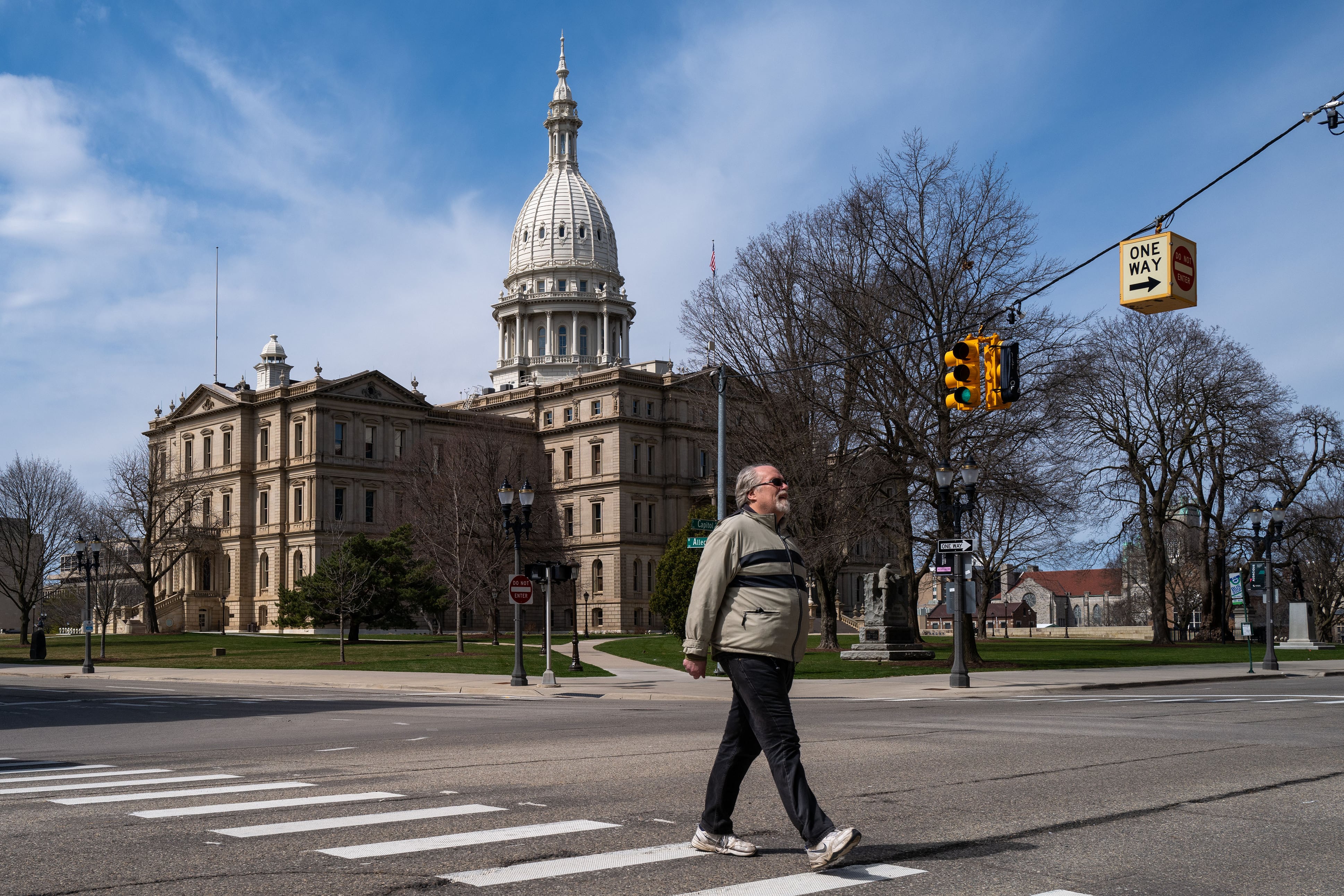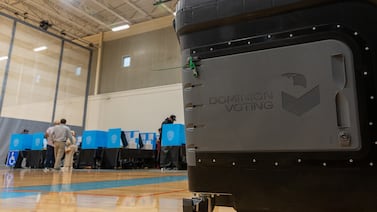Votebeat is a nonprofit news organization reporting on voting access and election administration across the U.S. Sign up for Votebeat Michigan’s free newsletter here.
After taking control of the Michigan House of Representatives, Republican lawmakers have begun shaping their election policy priorities. They’ve made one conspicuous change already: renaming the House’s Elections Committee — a standing body that outlives the control of any one party — the Election Integrity Committee.
Republicans in Michigan and around the country continue to push the theme of election integrity as a counterweight to Democratic efforts to expand voting access. Whether the committee name change amounts to a mere branding exercise, or represents a firm marker of election policy priorities for Michigan’s House leaders will become clearer in the coming weeks, as members of the committee are chosen and leaders lay out their agenda.
For now, it makes Michigan one of the first few states to have a legislative group dedicated by name to the idea of election integrity.
Committee name changes often happen as chambers swap party control. In past years, for instance, that same House committee has been named “elections and ethics” to show a shared focus. Other committees have gotten the same treatment: In at least one session, the standing committee on education was the “education reform committee.”
Rep. Ann Bollin, a Republican from Brighton Township, said that the new name change isn’t to suggest that Michigan’s elections lack integrity. Instead, she said, it suggests a commitment to reaffirming the strength of the state’s elections.
“We don’t need a lot of fraud to want to prevent it,” she said.
Bollin was formerly a city clerk for 16 years and chaired the Elections Committee when Republicans last controlled the House in the 2021-2022 session.
Republican leaders have made clear that they want to find ways to push through measures that have been promoted around the country in the name of election integrity. Rep. Bryan Posthumus of Rockford, the new House majority floor leader, has said repeatedly that he is prepared to introduce a proposal for a constitutional amendment that would require voters to provide proof of citizenship when they register, and implement stricter ID requirements for casting a ballot.
Getting such a measure on the ballot through legislative action would require a two-thirds vote of both chambers, and it’s unlikely to gain a lot of traction in the Democratic-held Michigan Senate. But a group backed by conservative donors has already organized an effort to gather signatures on petitions that would put the issue on the ballot if the effort in the legislature fails.
The group, the Committee to Protect Voters’ Rights, shares a treasurer with the now-defunct group Protect My Vote, according to state campaign finance records. Protect My Vote was the main opposition to 2018’s Proposal 3, which amended the state constitution to allow for same-day registration and no-reason absentee voting.
Posthumus was not available for comment Thursday.
Just over a week into the session, no elections-focused legislation has been introduced in either chamber. It’s possible certain pieces of legislation from last session, most notably the Michigan Voting Rights Act which sought to expand access for voters with disabilities or who don’t speak English, may come back in a modified form, but Republicans have expressed no support for the bills as proposed and voted against it last session.
A Republican effort to focus attention on noncitizen voting — an exceedingly rare occurrence — as a potential concern with U.S. elections could resonate in Michigan after a University of Michigan student from China was charged with casting a ballot in the 2024 election despite not being a citizen.
Sen. Jeremy Moss, a Democrat from Southfield who runs the Senate Elections Committee, said the election priorities in his chamber wouldn’t change. He said he was eager to see who would be on the House committee to start forming inroads with them.
“There are certainly some Republicans in the House that have been great to work with on these issues, and I don’t want to paint everybody with a broad brush,” he said. “This could be a committee that is just in name only ‘election integrity,’ but it still does the normal business of updating and modernizing our laws, or it could be a committee of conspiracy theorists. Our work continues regardless.”
Hayley Harding is a reporter for Votebeat based in Michigan. Contact Hayley at hharding@votebeat.org.






